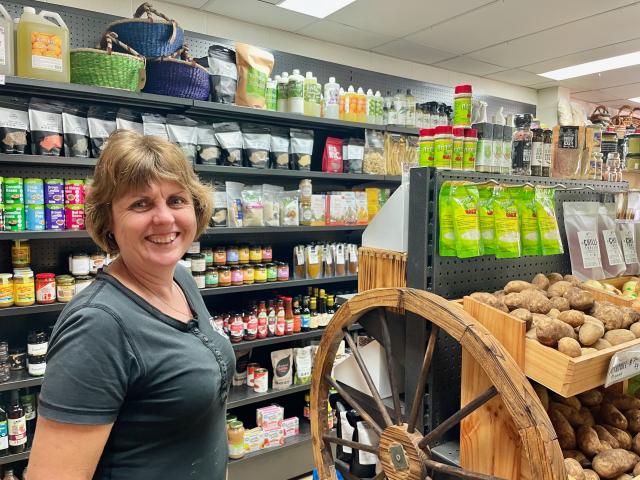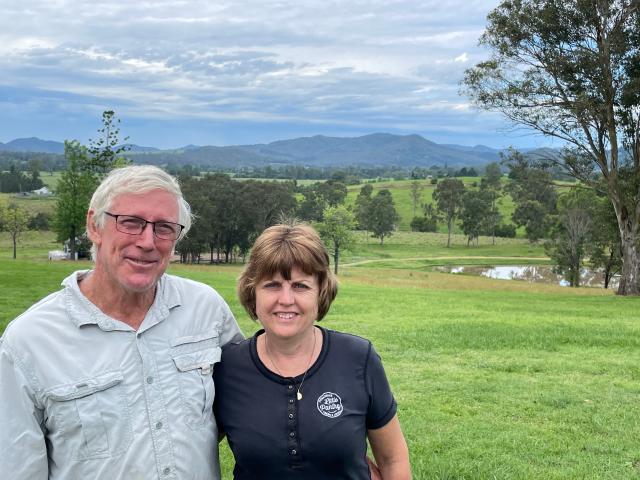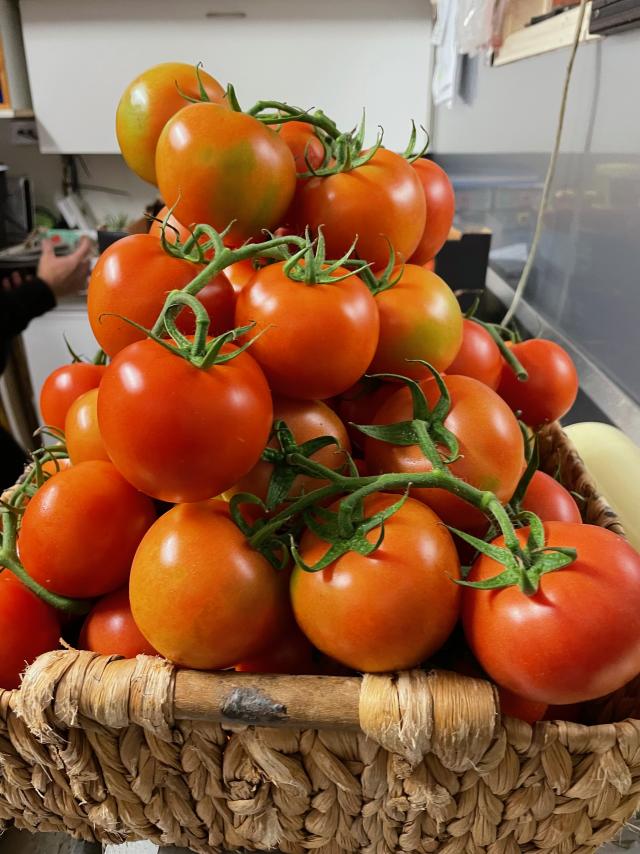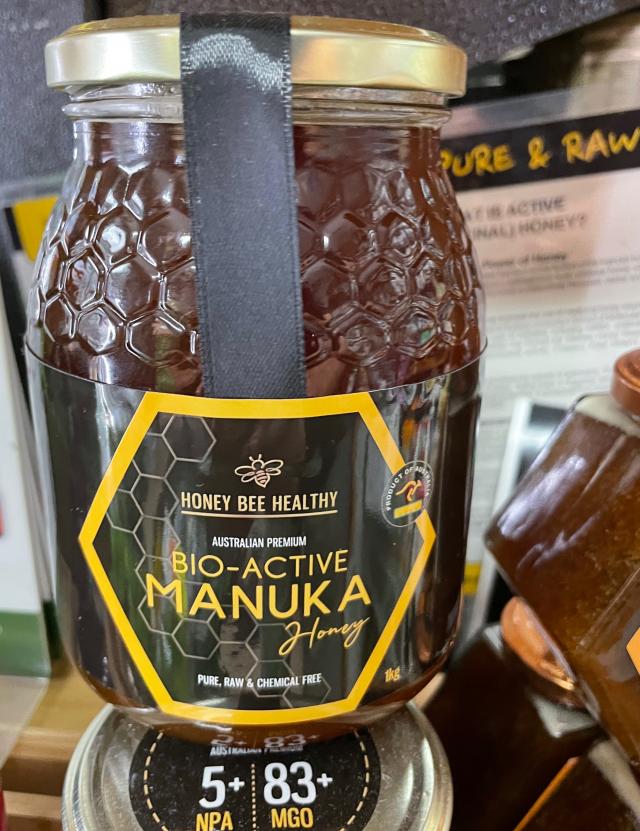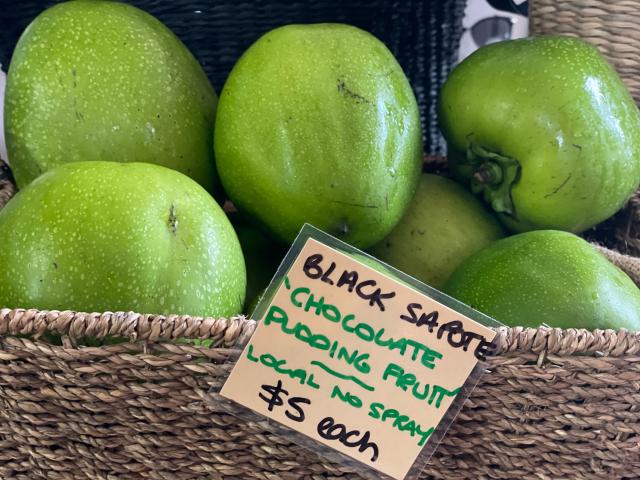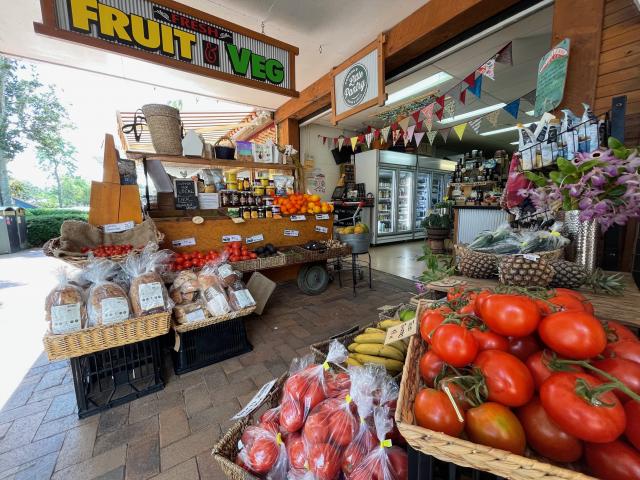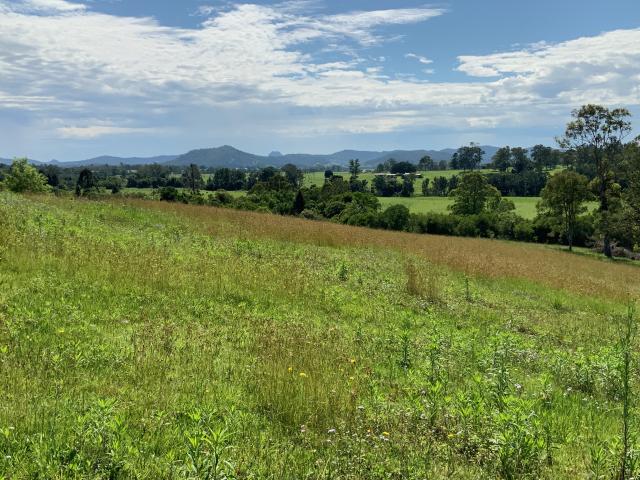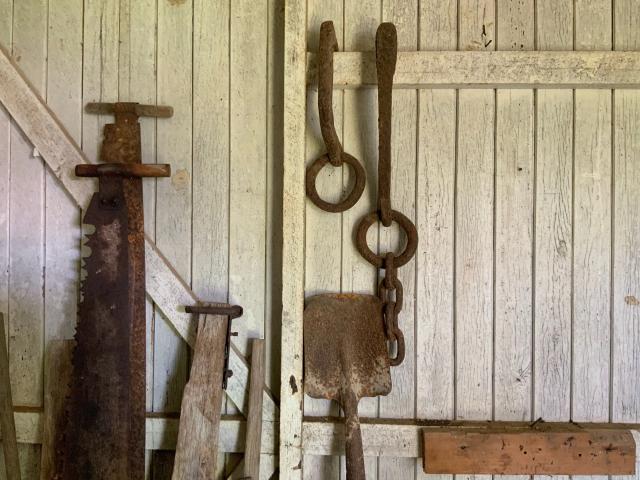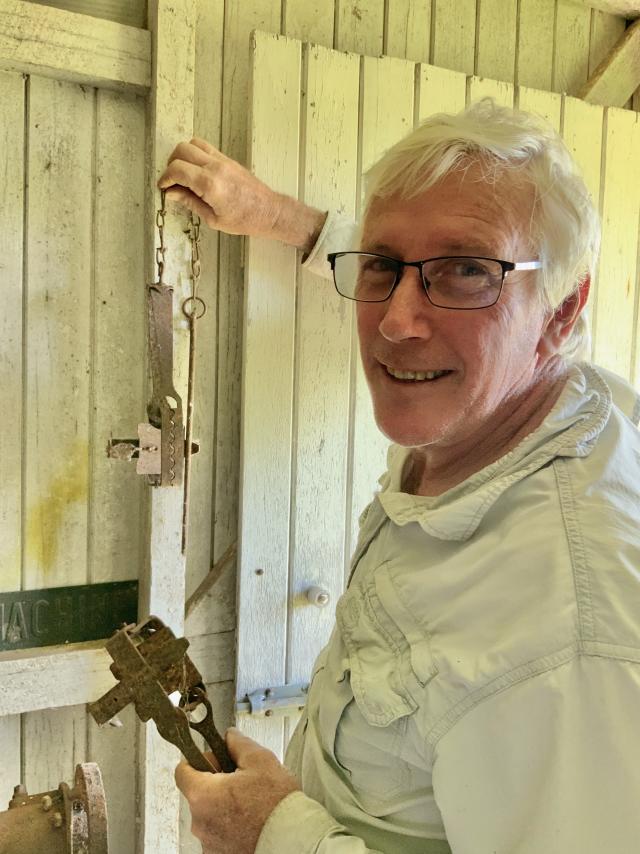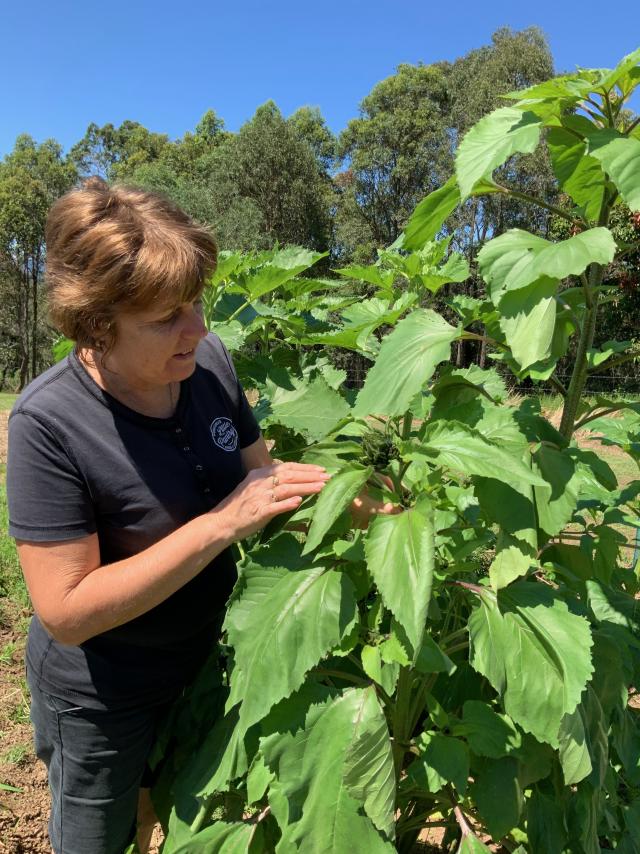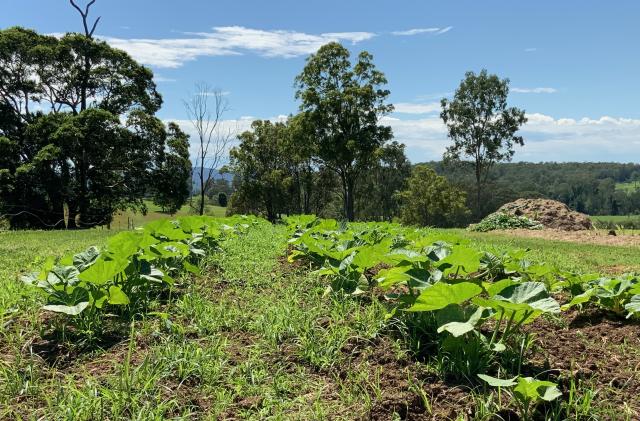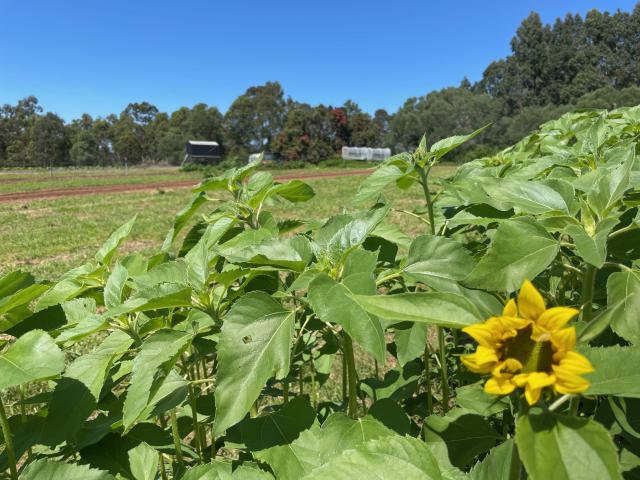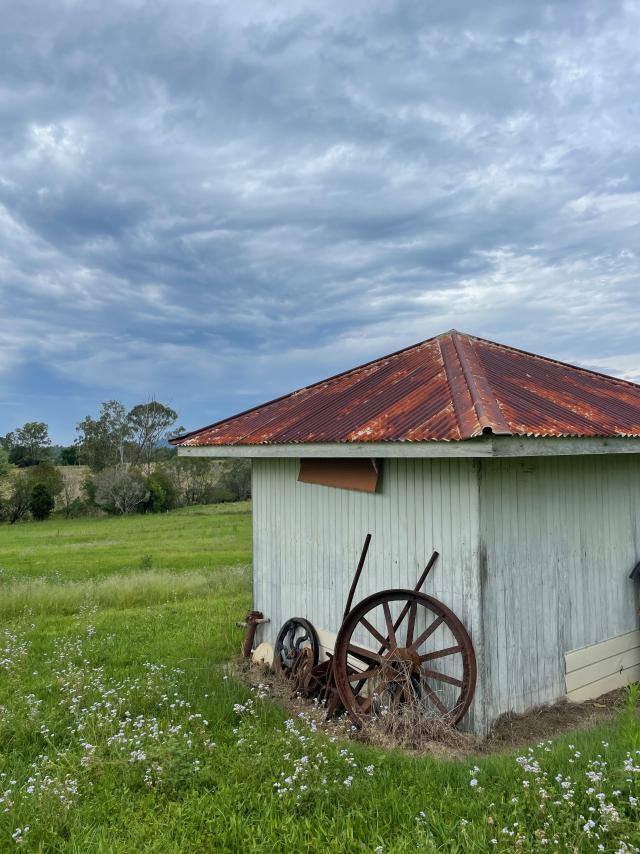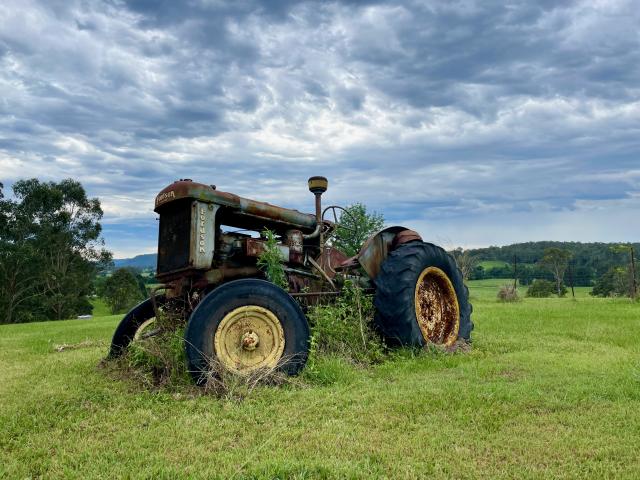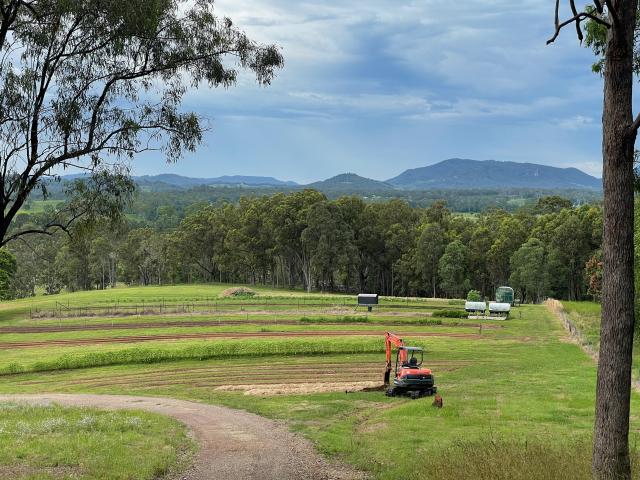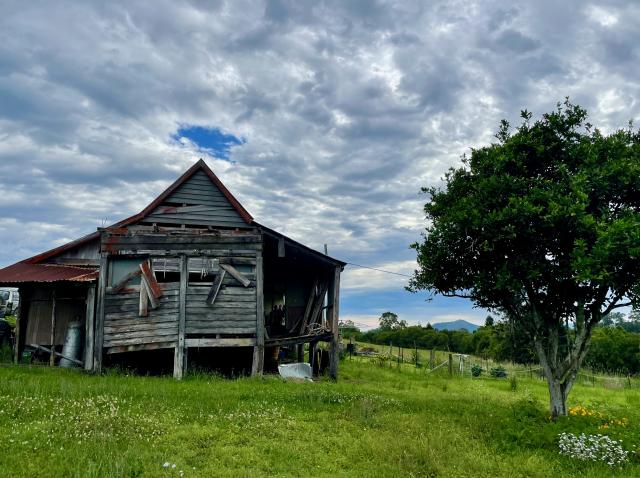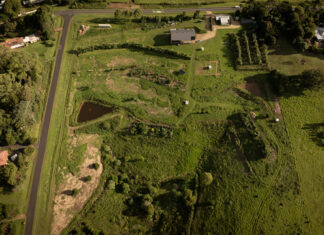There is nothing quite like fresh fruit and vegetables. ERLE LEVEY catches up with Kay and Geoff Kelloway of Pomona’s Little Pantry.
“It pays to buy quality. It’s going to last longer, it’s good for you, and it goes a long away when you’re making something.’’
You can always put a couple of extra spuds in the pot … it’s a saying mum lived by when unexpected visitors would drop by for a meal.
It’s just as relevant today as people come to terms with the ever-changing world.
That’s what Kay and Jeff Kelloway are finding at their fruit and veggie shop Pomona’s Little Pantry – you cannot beat good quality fruit and vegetables as they stretch the budget that bit further.
Just as importantly, it’s healthy food.
What started as a laneway in the 1980s has been transformed over the years into a vibrant hub for the local community to do their shopping.
The Little Pantry is an outlet for farmers and producers within the Gympie, Noosa and Sunshine Coast hinterland areas to display their goods, whether that be locally-grown organic avocados or tomatoes, exotic fruit such as black sapote or red angel pears, honey, jam or chutney.
The shop has evolved over time but more recently under Kay and Jeff‘s care the amount of shelving has been increased dramatically and so has the range of products.
Most are locally sourced but others come from areas such as Byron Bay. And when produce is not available locally in season they rely on North Queensland or southern markets.
It’s a little shop that can offer fresh, local and wholesome produce, much of it organic as well as conventional, gourmet groceries, dairy and health products, also more general lines.
On the wet morning when I visited the shop, Kay tells me she is a Mary Valley girl who grew up at Amamoor, while Jeff is from Pomona.
That’s where they met and recently Kay has been able to encourage Jeff back to the Valley where they have a 56-acre property that helps supply the fruit shop.
There, with Mount Cooroora to the north and Kenilworth Bluff to the south, they grow everything from sunflowers to spinach, silver beet and kale to zucchini, pumpkin, capsicum and a variety of herbs.
The sunflowers are just about to bloom, while the capsicum, chillies and pumpkins have been planted.
Deliveries are coming in the back of the shop from trucks and utilities as I look around.
Kenilworth and Cooloola dairy products are stocked as well as Coyo organic coconut yogurt that is produced on the Sunshine Coast.
Pomona honey, eggs from Bunya Grove Farm, Sandy Creek and Forage Farm, mushrooms from Tagigan Road – it’s a fascinating list.
Kay and Jeff bought the Imbil farm four years ago after living in Pomona for almost three decades.
“It’s an old dairy farm originally,’’ Kay says.
“There’s really good soil but a lot of old pineapple farms are in the surrounding area – they take a lot of the nutrients out of the soil.
“There used to be a lot of beans grown in the region as well.
“The farm has got the same cottage on it that was the original farmhouse.
“The main house is further up the hill.
“We don’t grow a lot of produce yet. Just the small crops but it’s pretty intense so we don’t need much.
“The rest is for grazing. Sometimes the neighbours put their dairy cows on it if there’s no feed.’’
Jeff is a chippy and he does a lot of work with Mitre 10 hardware stores – repairs and maintenance – and spends as much time as he can improving the farm.
“The farm was pretty rundown when we bought it,’’ Kay tells me. “The grass was waist high.
“Jeff stopped work for a couple of years when we bought the farm to tidy it up.’’
Before they bought the shop Kay was working at the markets with some friends – in the fruit and veggie side of things.
Kay had worked there for a couple of days a week prior to taking the farm on.
“When I heard it was for sale I went home and said to Jeffery, okay I think we gonna buy that because I could see the potential.’’
As I look at the town and the busy main street, even on a wet morning, you can see how it is really thriving.
“At weekends people come up here hiking, cycling and, yes, thokay I think we’re gonna buy that, because I could see the potential.’’
As I look at the town and the busy main street, even on a wet morning, you can see how it is really thriving.
“At weekends people come up here hiking, cycling and, yes, the mountains are big attractions,’’ Kay says.
“As well as the King of the Mountain Festival we’ve got the Noosa Trails, which people come up for, and we have even got a cycling event that starts in Pomona.’’
The idea behind going so local is about supporting the community as well as businesses. That way everyone helps each other to survive.
Kay and Jeff went out to seek these producers and suppliers but others started coming in looking for them to stock their produce.
By relying a lot on small croppers and seasonal produce it’s a matter of continually turning over stock.
Continuity of supply is a little bit of an issue but when it’s not there customers get what they can and then come back when it’s in stock again.
“It pays to buy quality,’’ Kay believes. “It’s going to last longer, it’s good for you, and it goes a long away when you’re making something.’’
The past two years of the Covid pandemic, interruption to supply from floods and staff shortages with transport and major food companies has shown the value of local retail.
“It’s taught me that some of those old values are just as true today,’’ Kay says.
“Relying on people in the street and them relying on a local produce store like like this.’’
“We’ve had a pretty rough season that has included two floods … the one in February was the one that was really damaging.
“Imbil’s pretty much a food bowl for the area.
“Queensland grows really well now until summer, then we have to start relying on the southern markets a bit more.
“Yet they’ve all been flooded too so I’m not sure what will happen there.
“Gatton is the major food bowl for Queensland and it got hit in the February floods but it’s just getting back on track again now.’’
The Little Pantry opens at seven in the morning and closes at 5:30 but Kay is in early to take the deliveries and set the shop up.
More people are buying organic now, she believes, as a result of Covid but also the lifestyle.
With many people now working from home or working remotely, they can structure their day better and lead a healthier lifestyle as well as being more productive.
“It’s just that people are thinking much more about what they eat, how they eat … they are very much more aware of the health side of eating properly.
“If you eat healthy, you’ll be healthy.’’
THE FARM AT IMBIL
Two days later I am out at Imbil. The sun is shining and I stop while driving down the track to the farm.
There are treed areas along the ridge that is a habitat for wildlife.
The farm is basically east-facing, down and across Yabba Creek that runs through the neighbouring property.
Jeff has significantly enlarged one dam, built another and improved the fencing.
The farm was originally part of a larger dairy property but had been used for horses in more recent times.
Jeff points out that the cottage was constructed by using an adze – an axe-like tool – to flatten bearers and joists.
“There was a lot of regrowth on the creek flat,’’ Jeff told me as we made our way up to the main house for a coffee and caramel/macadamia tart – locally baked of course.
“You couldn’t walk through, it was that thick. I used the excavator to open it up … take out wattle and rubbish.’’
Finding the property and having the vision of what to create was something Jeff and Kay agonised over for months.
They had looked at another property at Tandur but on the way into the property decided this was the one.
“It had that connection.
“We came in with a vision of growing things for the shop.’’
However, Jeff was called into work at Mitre 10 to help develop the Nambour store.
“It’s hard to walk away from what you know. There’s security in that.
“I’ve been in the building industry all my life, and I’ve never been shy to try other things.’’
Jeff initially did a fruit season in Victoria before working for a builder in Pomona and attending TAFE in Brisbane.
He tried professional fishing at Tin Can Bay, then went with a mate to Goodooga, in western New South Wales, and did fencing on one property.
It was a sheep station and Jeff learnt a lot, especially about the value of diversity.
From there he did a cane season in the Yandina-Bli Bli area, which taught him about long hours.
“There was never any hesitation when we learned the shop was for sale.
“Most tradies don’t have anything to sell when they retire except a ute full of tools.
“There’s something tangible about the shop to move on to.’’
The farm house was here, together with the cottage, but also a substantial machinery shed that had been used as an arena for horses.
The whole property had two plain-wire and electric fences. Under each was a water line.
Jeff put a solar pump in from the dam yet there’s also a bore to a tank that gravity feeds to each paddock.
“We pulled the fences out and the waterlines.
“We put those underground. You only need a grassfire to go through and you’ve lost the water.
“The excavator has paid for itself.’’
The plan is to grow the farm from the small crop area on the slope.
“It’s the best soil. Red volcanic style.
“We got the soil tested and the organic matter is very good.
“It’s not organic but we are working on those principles. Organic type fertilisers are used … chook manure, blood and bone.’’
An example of Jeff’s ingenuity is a mulch harvester he has developed.
By adjusting the blades on a slasher he can direct the grass upwards into a catcher behind the tractor.
The mulch is then used on the crops.
Orchard-style rotating sprinklers have been installed on the cropping area..
There is green space in between the plant beds and to conserve water they just direct it where it’s needed at the time.
“If you can walk away from a farm and it’s in better condition than when you came then you have done a good job,’’ Jeff believes, then adds “… even if you may not have made any money on the way through.’’
He likes the fact that a farmer can take produce to a shop or the markets and sell it, but when produce is brought up to the markets from Brisbane and sold, it is in direct competition to those that grow their own.
There’s a satisfaction in farming of being able to work in the sunshine then sit on the verandah at the end of the day and reflect on what has been done.
Much of that has been pulling out invasive plants.
Yet there is also a small orchard at the front of the house that needs caring for – white mulberry, lemons, lime, mango and avocado, pomegranate, feijoas, finger lime, lychees among them.
Lessons learned so far have been – there is not the need to spray as much.
“We’ve never had to,’’ Jeff says. “It costs money.
“If you do not need it, why do it. It impacts the soil.’’
Another lesson is that you need to be on the farm virtually every day, instead of waiting for something to become a problem.
As for the shop, Kay says it is a matter of listening to the customers and if they want something then get it in.
“When you do, someone else will want it as well.
“Keep the produce fresh.
“You have to sell what people want. That’s why it’s worked.
“I never have an issue with staff talking to customers. It’s all about personal contact. It’s the shopping experience, a social outing.’’
Jeff and Kay use Vegipods on the farm to grow the greens – raised up off the ground with a shade cloth cover and self watering.
That way it keeps all the bugs off and creates a micro climate by keeping the direct sun off and the moisture in.
“We are looking to do baby spinach next time,’’ Jeff says, “… it’ll be more suited to having the cover over the top.
“It becomes very hard to close the lid as the greens grow so much.’’
The aim is to increase the area of crops and include lavender, passion fruit, then blueberries on a couple of beds.
“We’re getting some herbs up for Christmas,’’ Jeff says. “I like to keep the door open on ideas.’’
That’s what’s so refreshing about Jeff and Kay’s approach – they’re open to new ideas that support local farmers and open the door to sustainable food practices for our future.

